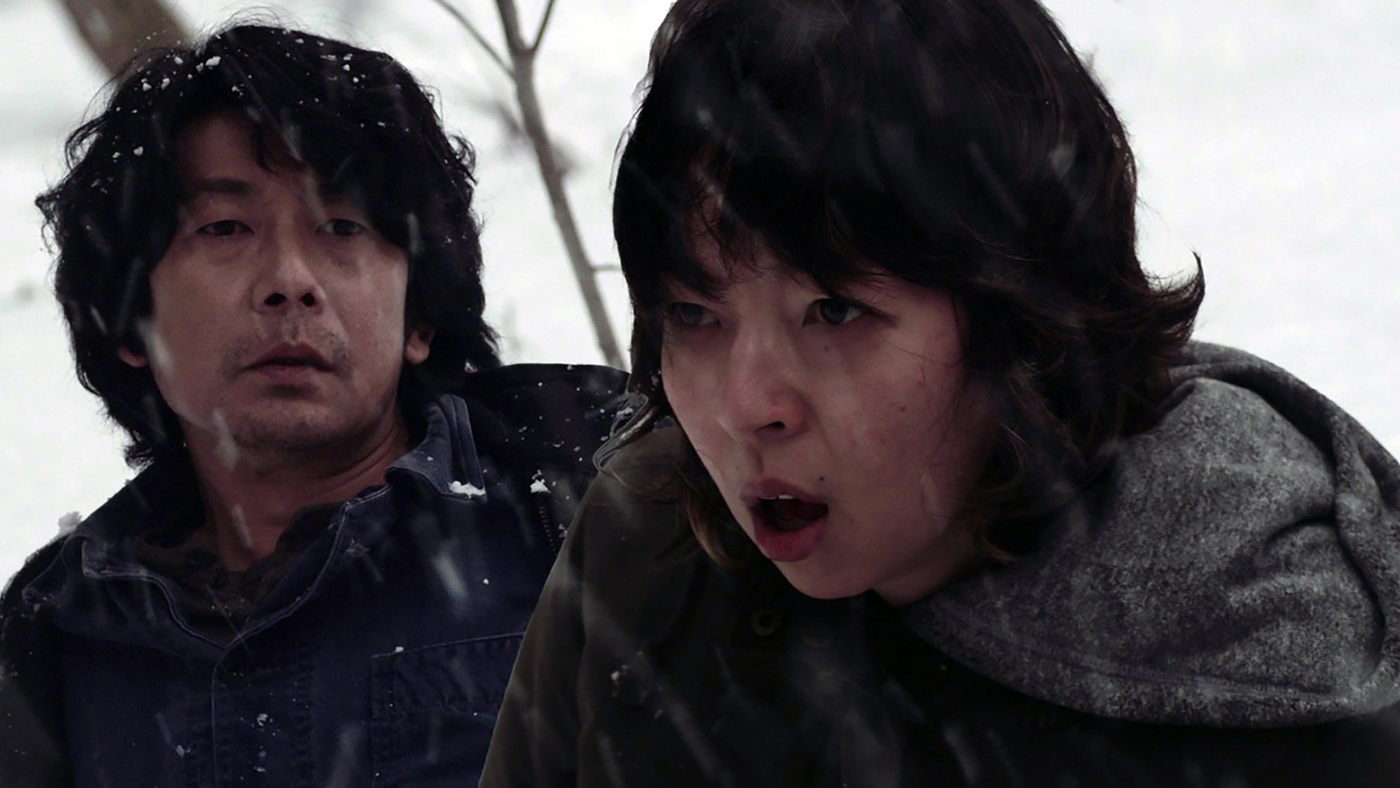Thirty years ago, a young boy disappeared amid mysterious circumstances involving a sociopath, her troubled daughter, and a devastating fire. Today, what is known of the tragedy is shrouded in a morass of clouded and fictionalised memories, stubborn silence, and well-rehearsed lies. When a journalist arrives intent on getting to the bottom of the long-closed case, a tinderbox of pent-up emotions and misplaced guilt ignites; a spiral of violence erupts from the clash of competing histories and debilitating psychological injuries. (Int’l FF Marrakesh)
The first thing one will notice about Red Snow is its distinctive palette and cinematography. At face value this accomplishes to provide the crime-centered story a noir aesthetic, but it is also safe to say this director who originally worked in the short film format and in video art was also looking to visualize the muddled nature of human memory at the core of the characters’ psyche also essential to noir. Strong thematics and powerful imagery have been a hallmark for Kai who has co-directed several acclaimed short movies, while her solo directorial shorts have been equally lauded such as The Curse of Ondine which won her an Honorable Mention at the SKIP CITY International D-Cinema Festival as well as receiving outstanding acclaim at a screening the Maison de la Culture du Japon in Paris.
The original script written by Kai was inspired by her own inner explorations. It was important for her to draw on the vagueness of memory as the connective tissue binding the story’s criminal mystery and therefore also engendered the work’s overall atmosphere As she revealed to Panos Kotzathanasis of Asian Movie Pulse: “People may lose their memories during an intense experience of suffering. It is said that sometimes the real offense is lost by assuming that the criminal has not done anything. Like Sayuri and Kazuki, [respectively Nahana and Nagase Masatoshi] a kind of hypnosis can be awakened by a keyword that you have forgotten in the past, or it can cause your current memory to go blank. If the thing that connects humans from the past to the future is ‘memory,’ that memory is indeed ambiguous, and I think that people are also ambiguous.”
Though her original story was able to attract the cast she envisioned while writing the script–Nagase agreeing to appear on the first draft alone–making it as an independent film in Japan proved “quite difficult,” she told Kotzathanasis, “[The] hurdles of subsidizing independent films and newcomers were high and could not be obtained.” Nevertheless, she persevered, resulting in this visually and thematically arresting debut feature which earned the Best Picture and Best Actress at the 14th Los Angeles Japan Film Festival as well as a the New Director Grand Prix for Kai at the 34th Takasaki Film Festival.

